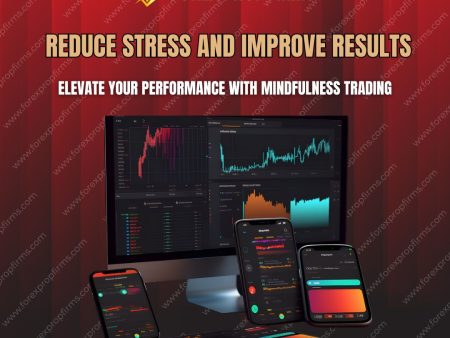
Proprietary trading requires not only advanced technical skills but also a strong psychological foundation. The mindset of a trader can significantly impact their performance and overall success. This blog post explores key psychological tips for proprietary traders, focusing on trader psychology, mental strategies for trading, and developing a resilient mindset in prop trading. Additionally, we’ll touch on how technical analysis tools for proprietary trading can complement these psychological strategies.
Understanding Trader Psychology
Trader psychology refers to the mental and emotional aspects of trading that influence decision-making processes. Emotions like fear, greed, and overconfidence can cloud judgment and lead to poor trading decisions. Mastering trader psychology involves understanding these emotions and learning how to manage them effectively.
- Emotional Discipline
- Emotional discipline is crucial for successful trading. This involves controlling your emotions and staying calm under pressure. Techniques such as mindfulness, meditation, and deep breathing can help you maintain emotional balance and make rational decisions.
- Stress Management
- Trading can be stressful, especially during volatile market conditions. Developing effective stress management techniques, such as regular exercise, adequate sleep, and taking breaks, can help you stay focused and reduce the negative impact of stress on your trading performance.
- Patience and Perseverance
- Patience is a vital trait for traders. Waiting for the right opportunities and not forcing trades can improve your chances of success. Perseverance is equally important; setbacks and losses are inevitable in trading, but a resilient mindset will help you overcome challenges and keep pushing forward.
Mental Strategies for Trading
Implementing mental strategies for trading can enhance your decision-making process and overall performance. Here are some key strategies:
- Visualization
- Visualization involves mentally rehearsing your trading strategies and envisioning successful outcomes. This technique can boost your confidence and prepare you for various market scenarios. Spend a few minutes each day visualizing your trading plan and executing trades flawlessly.
- Setting Realistic Goals
- Setting realistic and achievable trading goals can keep you motivated and focused. Break down your long-term objectives into smaller, manageable tasks. Regularly review your progress and adjust your goals as needed to stay on track.
- Self-Reflection
- Regular self-reflection is essential for continuous improvement. After each trading session, take time to review your trades, analyze what went well and what didn’t, and identify areas for improvement. Keeping a trading journal can facilitate this process and provide valuable insights into your trading behavior.
Developing a Resilient Mindset in Prop Trading
A resilient mindset is critical for dealing with the highs and lows of proprietary trading. Here are some tips to build resilience:
- Learn from Mistakes
- Viewing mistakes as learning opportunities rather than failures can help you grow as a trader. Analyze your losses, understand what went wrong, and use that knowledge to refine your strategies and avoid repeating the same mistakes.
- Stay Adaptable
- The trading environment is constantly changing. Staying adaptable and being willing to adjust your strategies in response to market conditions is crucial. Flexibility and openness to new ideas can help you stay ahead in the dynamic world of prop trading.
- Build a Support Network
- Having a support network of fellow traders, mentors, or a trading community can provide valuable encouragement and advice. Sharing experiences and learning from others can help you navigate the challenges of trading more effectively.
Incorporating Technical Analysis Tools for Proprietary Trading
While psychological strategies are essential, complementing them with effective technical analysis tools for proprietary trading can further enhance your performance. Here are some key tools:
- Moving Averages
- Moving averages help identify trends and potential reversal points. Using simple or exponential moving averages can provide insights into the market’s direction and help you make informed trading decisions.
- Relative Strength Index (RSI)
- The RSI is a momentum oscillator that measures the speed and change of price movements. It can help you identify overbought or oversold conditions, signaling potential entry or exit points.
- Fibonacci Retracements
- Fibonacci retracements are used to identify potential support and resistance levels based on the Fibonacci sequence. These levels can provide key price points for entering or exiting trades.
Encouraging User Engagement
We would love to hear from you! Share your thoughts and experiences with trader psychology and mental strategies in proprietary trading in the comments below. If you found these tips helpful, please share this article with your fellow traders. Your feedback and interactions help us create more valuable content for our trading community.
By mastering trader psychology, implementing effective mental strategies, and incorporating technical analysis tools, you can develop a robust mindset and achieve greater success in proprietary trading. Remember, a strong psychological foundation is just as important as technical skills in the pursuit of trading excellence. Happy trading!
Learn more about Advanced Trading Techniques
Looking for the latest Prop Firms updates?
Follow our official social channels and never miss a bit!














 for
for